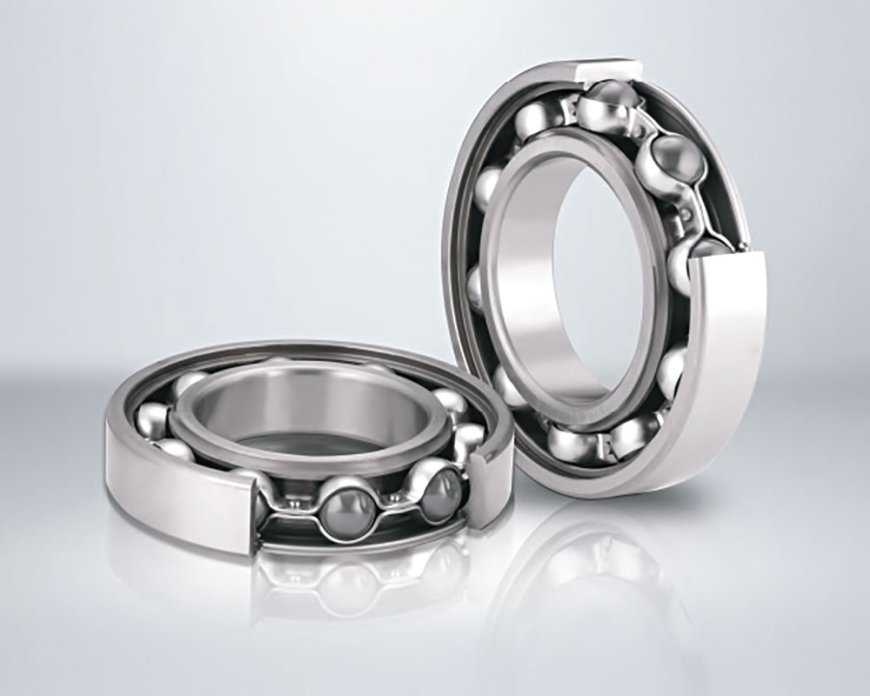Rolling Marvels!
rolling-marvels

The market for bearings used in construction equipment is closely tied to the overall health of the construction industry, technological advancements, regulatory considerations, and global economic conditions. The overall health and trends in the construction industry significantly impact the demand for construction equipment and, consequently, the market for bearings. Economic growth, urbanization, and infrastructure development projects can drive the need for new construction equipment, boosting the demand for bearings.
Equipment Times finds the current state of the demand-supply dynamics in the market for bearings, technical specifications, perspective on durability and reliability features, demonstrating performance in challenging conditions, such as varying temperatures, dusty environments, and other extreme scenarios, technical support or assistance, raw materials used in the production of bearings.
In the bustling world of construction, where towering structures reach for the sky and heavy machinery orchestrates the dance of progress, there lies a silent hero - the bearing. Often overlooked but indispensable, these unassuming components play a crucial role in the smooth functioning of construction equipment, forming the backbone of every project.
Construction bearings, small in size but mighty in impact, serve as the linchpin for the seamless operation of heavy-duty machinery. These unobtrusive circular wonders enable the rotation of shafts, axles, and wheels, allowing equipment to navigate the rigorous demands of construction sites with efficiency and precision.
Imagine a world without bearings. The cacophony of construction sites would be amplified as machinery grinds to a halt, progress impeded by the absence of these silent guardians. It’s in this backdrop that the true significance of bearings comes to light - they are the unsung heroes that keep the wheels of construction turning.
The Heart of Heavy Machinery…
Bearings are mechanical components that reduce friction between moving parts, facilitating the smooth rotation of shafts or other moving parts. In the construction industry, where loads are heavy and conditions harsh, the choice of bearings becomes paramount. The three primary types of bearings commonly employed in construction equipment are ball bearings, roller bearings, and plain bearings.
Ball Bearings: These are the most common type, featuring small metal balls that enable the smooth rotation of shafts. Widely used in construction equipment such as excavators, cranes, and loaders, ball bearings excel in moderate load applications.
Roller Bearings: Ideal for heavier loads and higher-speed applications, roller bearings distribute the load over a larger surface area. In construction, they find their place in equipment like bulldozers, paving machines, and crushers, handling the substantial forces encountered during operation.
Plain Bearings: Also known as bushings, plain bearings offer a simple yet effective solution. They consist of a sliding surface, often lubricated, and are commonly found in applications where rotating motion is essential, such as in the hinges of construction machinery doors or the swiveling joints of cranes.
Engineering Marvels: Bearings in Extreme Environments
Construction sites are notorious for their challenging conditions - from dust and debris to heavy vibrations and extreme temperatures. Bearings used in construction equipment are designed to withstand these harsh environments, showcasing the engineering prowess behind these seemingly humble components.
Manufacturers employ innovative materials, coatings, and sealing technologies to enhance the durability and longevity of construction bearings. Robust seals and protective covers shield the bearings from contaminants, ensuring their continued functionality in the face of adversity.
Ensuring Reliability: Maintenance and Technological Advancements
The reliability of construction equipment hinges on the health of its bearings. Routine maintenance, including lubrication and regular inspections, is essential to prevent premature wear and ensure optimal performance. Technological advancements in bearing design have also contributed to increased efficiency and longevity, with features such as self-lubrication and advanced materials playing a pivotal role.
A Sustainable Future: Bearings in Green Construction
As the construction industry embraces sustainability, bearings too are evolving to meet the demands of eco-friendly practices. From energy-efficient designs to the use of environmentally friendly materials, the bearing industry is making strides towards a greener future. Reduced friction and increased efficiency not only contribute to energy savings but also align with the broader goals of sustainable construction practices.
The Unseen Force Propelling Progress
In the world of construction, where every rivet, beam, and bolt is scrutinized, it’s easy to overlook the humble bearing. Yet, these unassuming components are the unseen force propelling progress, ensuring the smooth operation of the heavy machinery that shapes our skylines and landscapes.
As construction continues to evolve, driven by technological advancements and a commitment to sustainability, the role of bearings becomes increasingly vital. These silent heroes, with their ability to endure the harshest conditions, will remain integral to the construction industry, steadfastly supporting the building blocks of progress.
Indian Market for Bearings…
Growth in Construction Sector: The demand for bearings in construction equipment in India is closely tied to the growth of the construction sector. India has been witnessing significant infrastructure development, including roads, bridges, airports, and urban infrastructure. This growth has a direct impact on the demand for construction equipment and, consequently, the bearings used in these machines.
Increasing Urbanization: Rapid urbanization in India has led to a surge in construction activities, especially in tier-1 and tier-2 cities. This trend is likely to continue, further boosting the demand for construction equipment and associated bearings.
Government Initiatives: Government initiatives such as “Make in India” and investments in infrastructure projects contribute to the overall growth of the construction industry. These initiatives can positively influence the market for bearings used in construction equipment.
Automated and Technologically Advanced Bearings: The construction industry is gradually adopting more advanced and technologically sophisticated equipment. This shift may lead to an increased demand for high-performance bearings that can withstand the rigors of modern construction machinery.
Global and Local Players: The market for bearings in India includes both global and local manufacturers. Global players often bring advanced technology and quality standards, while local manufacturers may cater to specific demands and offer cost-effective solutions.
Challenges: Factors such as price sensitivity, intense competition, and fluctuations in raw material prices can pose challenges for businesses in the bearings market. Economic factors and regulatory changes can also impact the industry.
Distribution Channels: The distribution network for bearings in India includes authorized dealers, distributors, and direct sales to OEMs (Original Equipment Manufacturers) in the construction equipment sector.
Environmental Considerations: There is an increasing focus on sustainability and environmentally friendly practices in the construction industry. This may influence the choice of materials and manufacturing processes used in bearings.
Leaders Speak…

Sanjay Koul, Managing Director, Timken India, said, “In the context of demand-supply dynamics for bearings in construction equipment, the current state reflects a delicate equilibrium. The thriving growth in the construction industry has led to an increasing demand for bearings to support heavy machinery. Timken, as the leading authority in engineered bearings, is actively optimizing its processes to meet socio-economic modifications necessary to address the general market needs. Post-2021, the market has witnessed a significant shift, experiencing a consistent upgrowth in demand, driven by the thriving construction industry. Despite global economic uncertainties and potential slowdowns, the demand for bearings in Indian market remains robust. Timken, with its highly capable manufacturing footprint, is well-positioned to meet this demand. To navigate this landscape effectively, Timken India places a strong emphasis on robust supply chain management, explores alternative sourcing options, and collaborates closely with suppliers. Continuous monitoring of market trends and proactive adjustments to production and distribution strategies are pivotal to sustaining a reliable supply chain of bearings, supporting the growth of the construction industry.”
Sanjeev Taparia, Chief Sales & Marketing Officer, NBC Bearings, said, “As NBC, we closely monitor these dynamics to ensure our strategies align with the industry’s needs. The demand for bearings in construction equipment has been resilient, fueled by ongoing infrastructure projects and construction activities. However, it’s imperative to navigate challenges associated with supply chain disruptions, a common phenomenon affecting various industries globally. Construction equipment manufacturers are
experiencing sustained demand for high-performance bearings to enhance the efficiency and reliability of their machinery. This demand is driven by factors such as infrastructure development, urbanization projects, and the replacement of older equipment with modern, technologically advanced versions. As NBC, we proactively address these challenges through efficient supply chain management practices and strategic partnerships with suppliers. Our focus remains on maintaining a robust supply chain to meet the demand promptly.”








